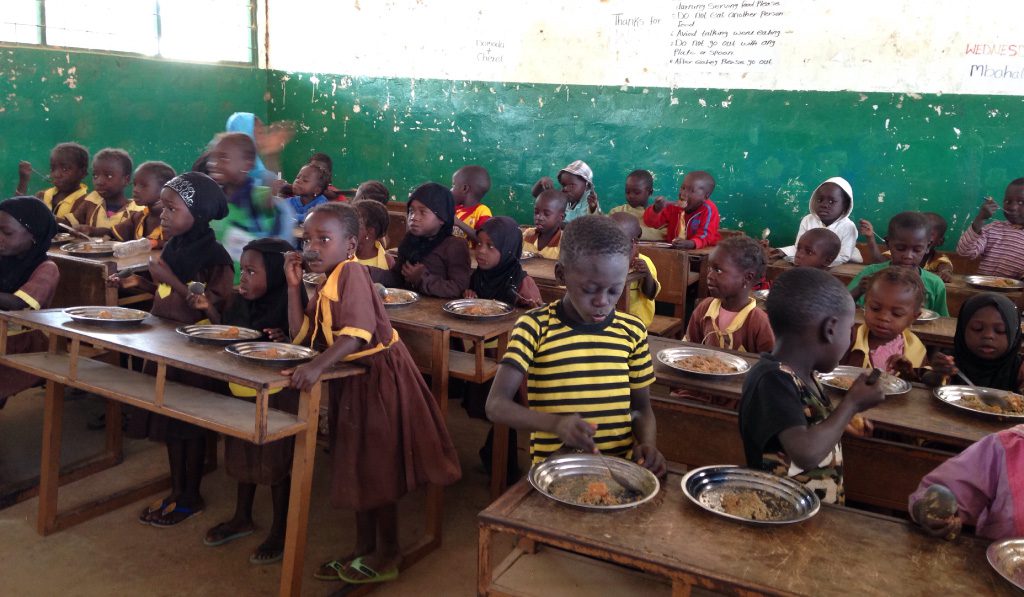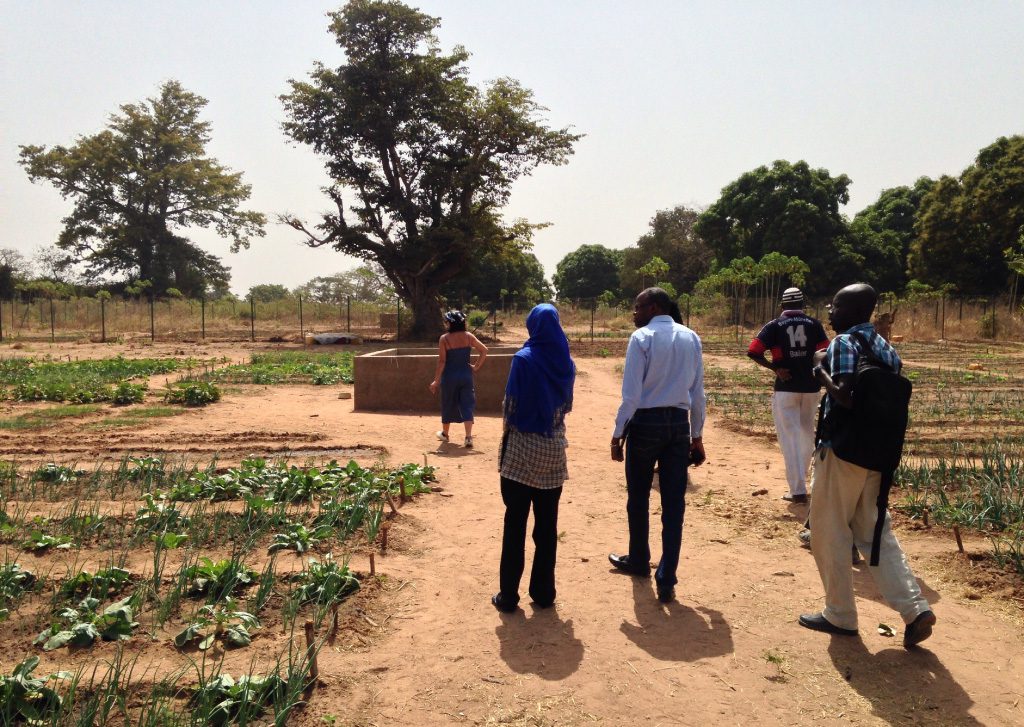
From 22 to 26 January, Vinícius Limongi, an expert from the WFP Centre of Excellence against Hunger, participated in a mission to The Gambia with Ali Aboulsalami, P4P Regional Coordinator from the WFP Regional Bureau in Dakar. The goal was to contribute to the identification of key areas and entry points WFP can work with to increase aggregation, capacity and post-harvest value added for smallholder farmers, and to intensify food procurement from those farmers.
In line with the findings of the Zero Hunger Strategic Review and local consultations conducted in The Gambia, the mission assessed the current community procurement model, which involves providing cash to school to procure food locally. As part of the Country Strategic Plan process, currently under development by the Country Office, the mission advised the WFP country office on areas of the current initiative that need to be strengthened, on the systematic review of current scale-up plans, on the possible contracting modalities to make it easier to buy from smallholder farmers, and on complementary partnerships that can forged to increase indirect support to the farmers.

Food and nutrition insecurity remain serious problems in The Gambia, and WFP is committed to addressing the underlying causes of this situation whilst supporting the government to create a systematic safety net for populations vulnerable to disasters, such as droughts and floods. The WFP country office is assessing the inter-connected issues of food production, malnutrition, disaster vulnerability, gender inequality, and government capacity, as part of the planning process.
One potential contribution of the country office to The Gambia is the development of a capacity building strategy, with clear goals and an action plan. Another key aspect of the WFP cooperation with The Gambia is purposely linking smallholder farmers to existing reliable markets, such as the home-grown school feeding programme.




